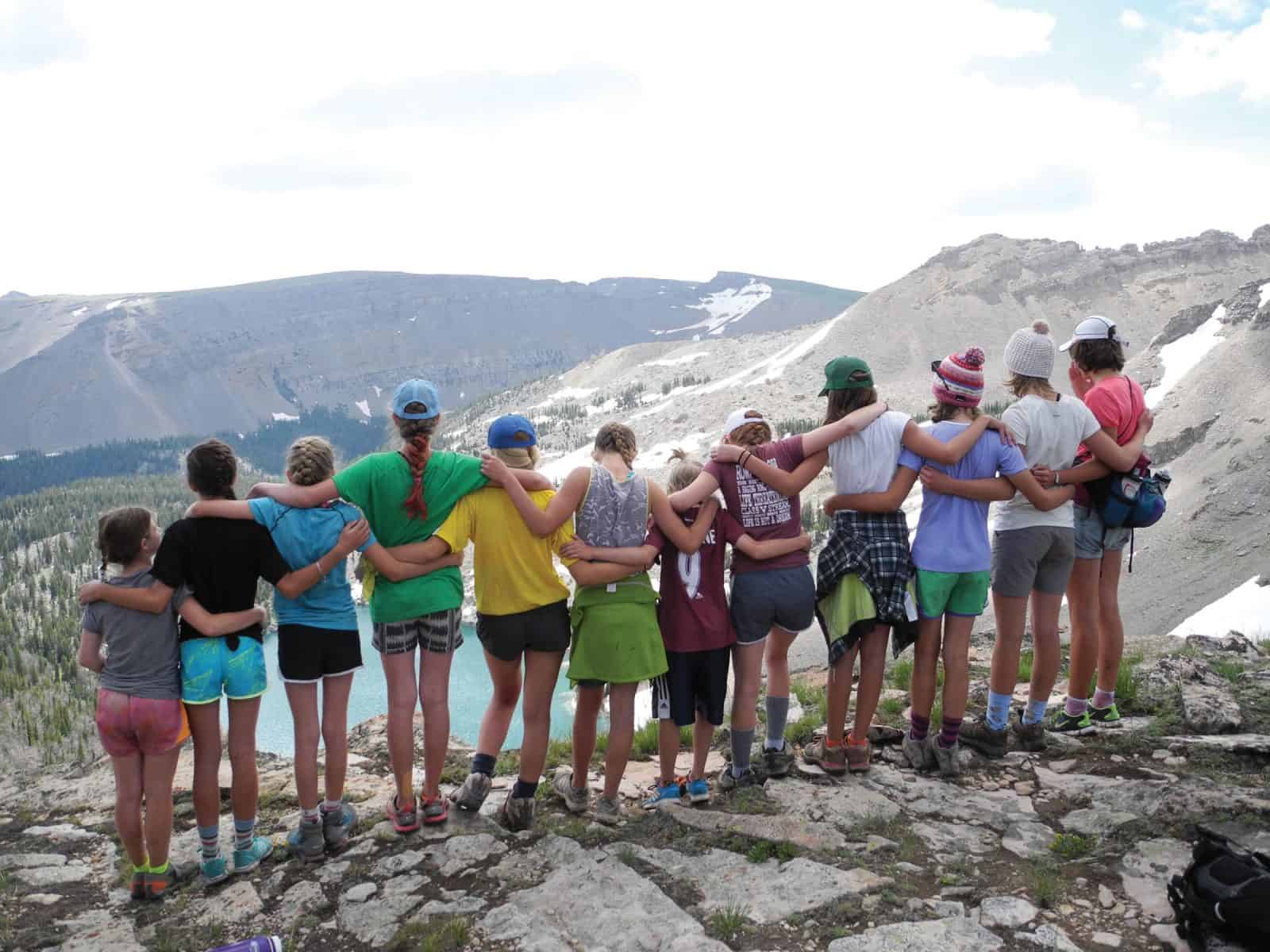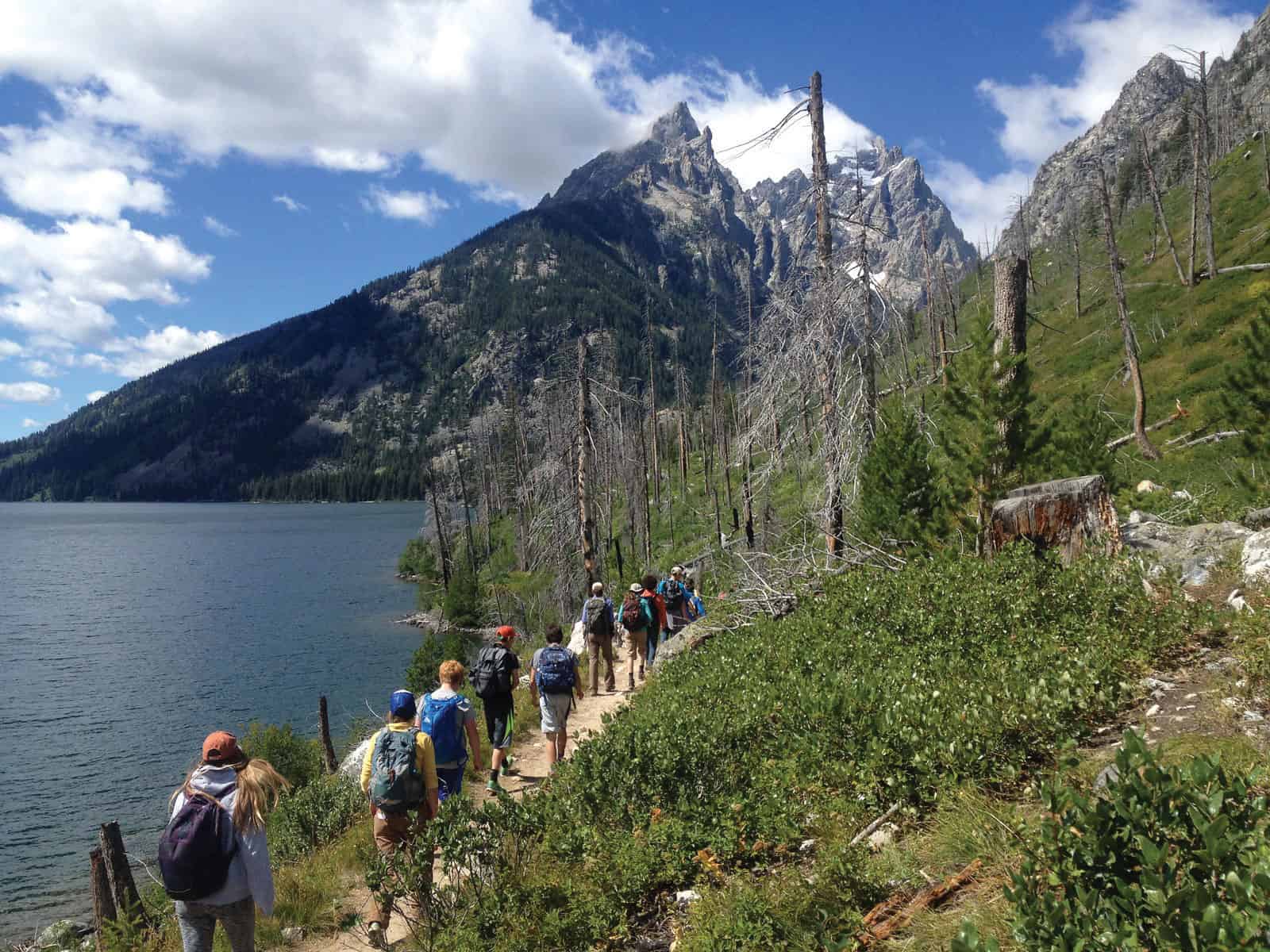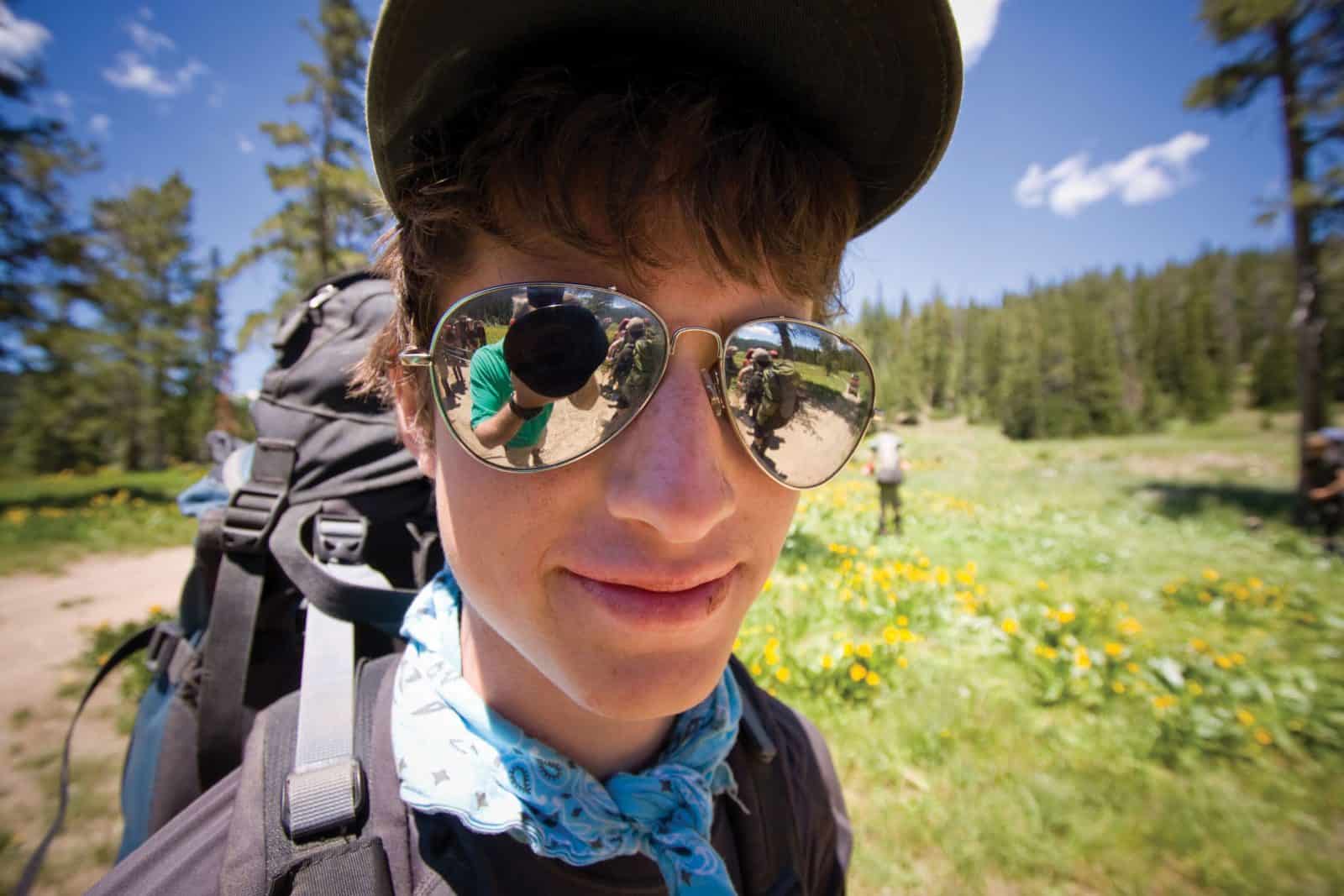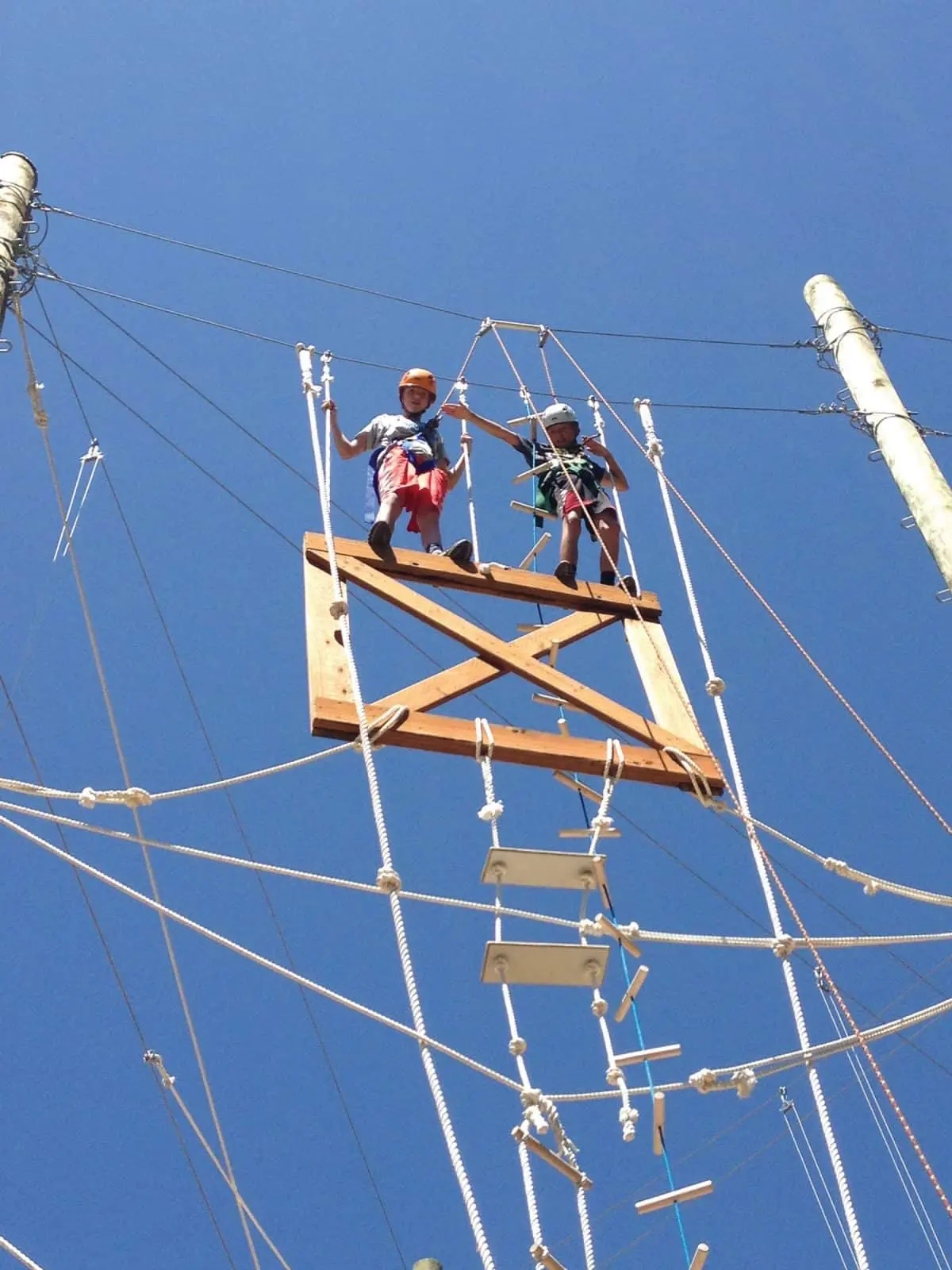By Alex White
—
I still recall my first steps through the camp’s entrance and onto the soft, dusty pathway lined with pine needles and shaded in towering Northern California redwoods. Around me, other arriving campers excitedly ran to hug one another and recount memories from previous summers they had shared. I knew no one, and felt out of place as I shuffled my way to the lodge for check-in. Every ounce of my adolescent awkwardness seemed to hit me at once during that seemingly endless walk. Still, I managed to reach the lodge, petrified of what was to come.
From there started a two-week journey of adventure, connection, development, and discovery. I spent my first night in the backcountry, hiked my first (and second and third) mile under a heavy pack, braved my first lightning storm, cooked my first meal, and even had my first kiss. Through all of these experiences—the awkward and awesome—I got to know myself, independent of my day-to-day life, school, family, friends, and routine.
Many years have passed since that camp experience, yet I still note its influence on my life. Not only do I live in a beautiful place full of outdoor adventure, but I’ve also had the opportunity to plan and facilitate meaningful summer experiences for other young people. I like working with adolescents because I’ve seen how a summer experience can influence their lives. And while fun is undeniably an important part of summer programming for teens, there is added opportunity to create a powerful and fulfilling experience, different from any other.
Adolescence 101
Adolescence is the time when kids become people. As a child, your parents have total control over the world you live in. They decide whether you ski the Village or watch cartoons on a Saturday morning. They decide if you eat Big Macs or vegetables for dinner. They decide whether you solve problems by yelling and screaming, or by talking it out.
Parenting an adolescent is less about control and more about guiding support. During this time, which experts say spans from ten to nineteen years of age, teens and tweens draw on the influences of childhood to develop their independent selves. Rather than trying to fight the natural process, you should saddle up and roll with it by providing your teen with a meaningful summer program where he or she can exercise independence and exploration. Consider the following summer camp benefits before going the course:
Individuation
A sleepover summer camp may be your kid’s first time spending the night away from you. This is a good thing—allowing them the opportunity to see themselves as true individuals. It’s up to them to be either the person who leads others along the trail, or puts up the tent, or checks in with a struggling teammate, or tells jokes around the campfire. Personalities emerge in situations where they are separated from you.
It was during my first summer at camp that I discovered my passion for the outdoors. Without that experience, I may never have arrived at a life in Jackson.
Peer-Group Expansion
In a small, remote town such as ours, there are limited opportunities for young people to expand their peer groups. Many have had the same set of friends since elementary school. Together they’ve trick-or-treated, raised pigs, ski raced, and stayed up late watching movies and eating popcorn. While these friendships are important, there are also benefits to spending time with new people. When placed in a new environment, the girl who is usually quiet at school or home may have an affinity for telling improvised ghost stories, complete with disguised voices and sound effects—who knows?
Peer Experience
During the closing ceremony of a boys’ backpacking trip that I led, one mother said, “I can’t get my son to hike fifty feet, and you just got him to hike the Teton Crest Trail!” To me, this woman’s realization about her son made sense. By refusing to hike with his mother, this boy was not saying, “I hate hiking.” He was simply saying, “I want to hike with my friends.” Providing opportunities for your teen to develop knowledge, skills, and experiences among his or her peers, rather than with you, makes them far more likely to engage with you in the future. Summer programs provide a great opportunity for this.
Relationships with Staff
Although they may act like it, teens really don’t have all the answers. And sometimes they abstain from reaching out to you with their questions. It’s not because they don’t trust your guidance, it’s just because you’re their parent. Rather than reminiscing over the days when you came to the rescue, instead offer them an opportunity to develop supportive relationships with other adults. Among these mentors are coaches and, of course, camp counselors. A supportive relationship with even just one nonparent adult helps teens develop the personal strength and resiliency to weather the most significant struggles.
A Break from Achievement
Teens are faced more and more with the pressures of achievement. In high school, grades and test scores suddenly carry daunting influence over their futures. Athletics hold a similar preoccupation with performance, as winning or college admission becomes the major priority rather than sportsmanship, teamwork, or even fun. Summer programs can offer a break from the stress of achievement. They give young people an opportunity to pursue interests rather than goals, and experiences rather than outcomes. Sure, the pressures are still present, but summertime can serve as a well-deserved break.
A Chance to Unplug
Even here in the Tetons we are not immune from the digitalization of our culture. Summer camps provide an increasingly rare opportunity for teens to step outside and unplug. The benefits are significant, to say the least. Time spent outdoors promotes physical activity, healthy development, and overall wellness. Is your teen having trouble sleeping? Research suggests that one week of sleeping outside can reset natural melatonin levels and circadian rhythm, returning individuals to a more natural sleep cycle. Time in nature can even help alleviate symptoms of mental health issues like attention deficit hyperactivity disorder, or ADHD.
The Conversation
Now that we agree on the far-reaching benefits of summer programs for adolescents, how do we engage them in it?
This progress toward adulthood sometimes presents a staunch refusal to participate in anything that reeks of parental involvement. So first, exclude the phrases, “You’ll thank me one day,” or “When I was your age …” from the negotiation repertoire. You can, however, say, “Doing nothing is not an option.” Yet, despite its seeming finality, this phrase should be a conversation starter rather than the end. Act curious. And remember, you’ll have much better luck asking, “What would you like to do?” instead of telling them what to do. The more involvement teens have in the organization of their summer, the more engaged they will be.
Lastly, sometimes parents—as well as kids—get hung up on the idea of a summer job. Of course there are benefits to professionally oriented pursuits, but I suggest finding a balance between work and levity. Teens have their whole lives to work, and summers don’t last forever.






